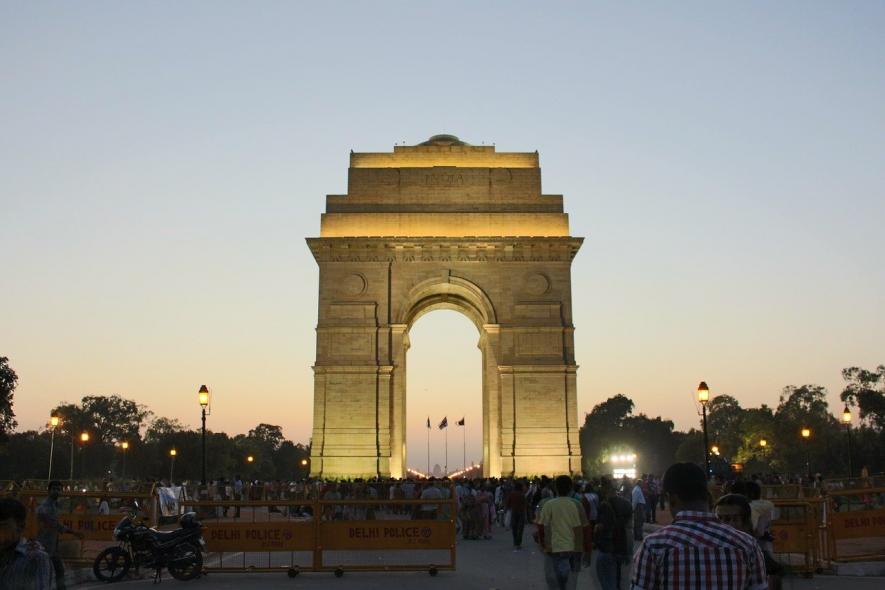India Needs a New Anti-Majoritarian Self

We learn from the majoritarian culture that is spreading around the world that its influence cannot be explained by just politics, identity and electoral strategies. Majoritarian regimes in India and the world have also been deploying another idea—one that penetrates the inner self—to secure majorities. In other words, if we have to counter majoritarian ideas, it is not just important to discuss and understand the world outside, but also the world within each of us.
Neoliberalism has engineered a growing sense of emptiness in societies, which has made many people turn to whatever conceptual and cultural resources are at their disposal. This search partly explains the growing following of various pop-gurus: people need to make sense of their own lives and experiences. Yet, what kind of self can weather the ongoing violation of the integrity of selves that is taking place in this milieu? Who should we be, as individuals, if we are accountable to our own selves and not just to the outside world? Will it bring us a self that can offer durable peace, harmony and inner happiness?
What the world is witnessing is external aggressions whose origin can be traced to hollow inner selves cutting across region, religion, caste and class. That is why there is a need for an additional spiritual domain, which would add on to the unfolding political and social dynamics. Philosophers over the ages have attempted to find routes to reach here; while Gandhi talked of conscience, Iqbal talked about khudi (self) and a war on it as jihad—purging the self of the toxic distortions.
Without a discussion on this idea of the inner self, the battle against evil—which is the creeping fascism to some and to others misogyny, and so on—is inadequate and a losing game. The need for a battle of each individual with their own self must be realised. For, at least a part of that self, which invariably gets distorted in the course of socialisation, needs to be brought it in tune with itself. One could call it, as Max Weber has, “salvation”, or one could refer to it as aesthetics of the self, but this is a lonely battle against inner loneliness.
To return to the dynamics of majoritarianism, its leaders and strategies also represent a certain kind of self. This self has something in common with us all. Michel Foucault has referred to this phenomenon as the “fascism in us all”, while critical theorist Theodore Adorno has talked about how totalitarians tap into the mass psyche using their own psychological fragilities. What makes such leaders “strong” is their resolve to make instrumental use of their insights into those vulnerabilities, and their simultaneous hatred of them.
In other words, a “strongman” might come across as a narcissist, but in reality, he (or she) suffers from self-hatred. It is this self-loathing inner self that creates and reproduces fear. This is not just a fear of mere physical harm. It also ensconces how we really feel about ourselves, and our fear that others will come to learn of it. Civil rights activist K Balagopal had once remarked that human beings can be dishonest with others and create images and lies but it’s very difficult to be dishonest with one’s own self.
Fear has two conjoined dimensions: the terror of being insulted and of loneliness. How we perceive being insulted is closely linked to the issue of trust. Those with a poor sense of self and trust feel a high quotient of insult. Yet, often, the problem is that a lower ability to trust leads to a stronger sense of insult, and when the feeling of being insulted gets stronger, it leads to hyper loss of trust. Bertrand Russel had once said that those who suffer from pervasive sense of lack of feeling loved, are in actuality not loved in the world. Those who are confident, and less dependent on others, end up getting more attention and love.
This pervasive circularity is the core problem with this inner dynamic of insult and trust, and this makes it difficult to break out of its vice-like grip. To break out requires resolve and psychic energy. It requires self-oriented and inward-oriented experiments. The other problem with the inner self seems to be that the world treats us the way we imagine ourselves. Therefore, we need to imagine ourselves differently, but the world also makes it difficult to do so. So, on the one hand we feel that the world needs to treat us differently, but our inner self refuses to change our perception of the world. This phenomenon often gets viewed as either the diffidence of a person, or their sense of inferiority or even persecution mania.
There is a connection between majoritarianism and retributive acts, which in turn have a fair degree of connectivity to the inner self. Further, acts of retribution are exacerbated during neoliberal times, where there is no minimal assurance or security on one end—and no limits to aspirations on the other. So, there is no minimum, and we cannot achieve the maximum. The self that is caught in this circularity is one that seeks retributive justice and majoritarian gratification. Those, of course, bring relief but not security. To relish retribution is to invite nihilism, not meaning.
In order to resist the majoritarianism surging around us, we need a public culture of transforming the inner self. This would include the ability to face insult and negotiate loneliness without seeking retribution or delving into nihilism; to not react in the spirit of revenge or to glorify ones ego. There are no known or paradigmatic means of achieving this; it is a struggle each individual would go through, by waging war on one’s self and being conscientious.
A resolution may not necessarily or automatically be produced by the context; this is a choice one will need to make to undertake an abstract, perhaps even spiritual, exercise. But the exercise must be one that is deeply relatable. The moment one absorbs insult without reacting, even when convinced that the insult is unjustified; that is when one begins to feel independent and strong and the process to quell inner loneliness begins.
Can we defeat majoritarian fear and the simultaneous fear of majoritarianism without this inner spiritual struggle? Without this accompanying dimension, it is difficult to separate the justified demands for representation from sectarianism and justified aspirations to equality from glorified ego.
It is difficult to separate a sense of injury from untenable pride. It is our collective refusal to walk out of this relentless inner suffering that gets manifested as external aggression and violence. Right-wing politics is the best representation of this inner malaise, for it thrives via everyday hatred. One way to fight it is through building an inner self that does not get damaged in the fight against the Right.
Finally, it is through achieving inner peace that one might be able to push individuals who are enamored by right-wing aggression to reflect on themselves. There is no guarantee that this will happen, but that should not dissuade all the rest of us not to take this path.
The author is associate professor, Centre for Political Studies, JNU. The views are personal
Get the latest reports & analysis with people's perspective on Protests, movements & deep analytical videos, discussions of the current affairs in your Telegram app. Subscribe to NewsClick's Telegram channel & get Real-Time updates on stories, as they get published on our website.
























